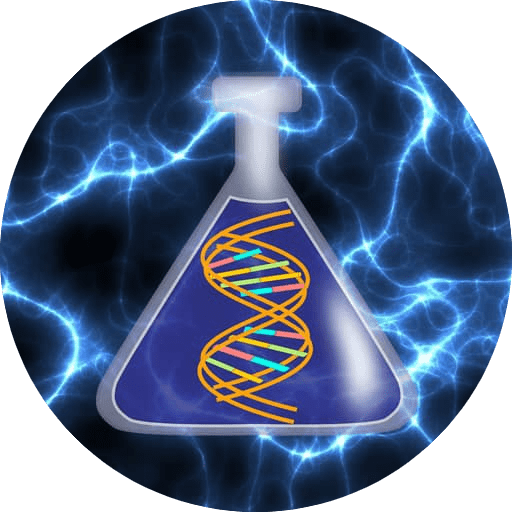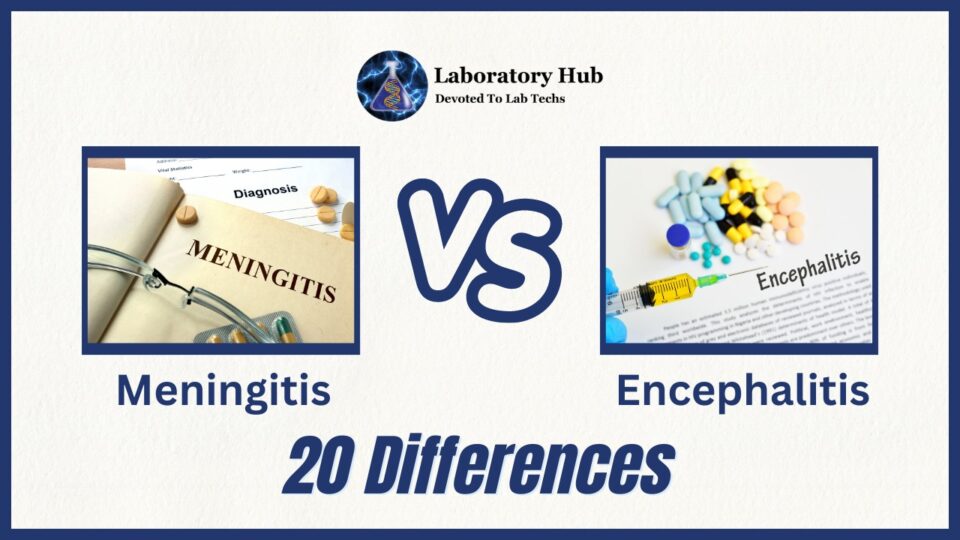Meningitis and encephalitis are life-threatening central nervous system diseases. Symptoms and causes are similar, but the two illnesses are separate. Accurate diagnosis and therapy need understanding these variances. Meningitis is inflammation of the meninges, which protect the brain and spinal cord. Fungal and parasite diseases can cause meningitis. Supportive treatment usually cures viral meningitis.
Bacterial meningitis requires medications immediately. Meningitis causes severe headaches, neck stiffness, fever, light sensitivity, and impaired mental state. Encephalitis is brain inflammation. Viruses, bacteria, fungi, and parasites can cause it, like meningitis. Autoimmune illnesses and allergic reactions can cause encephalitis. Encephalitis can range from flu-like symptoms to seizures, disorientation, and coma. Encephalitis can cause neurological damage or death.
Meningitis and encephalitis differ in the central nervous system regions affected. Encephalitis damages brain tissue, while meningitis affects the meninges. This distinction explains each condition’s symptoms and consequences. Meningitis and encephalitis are diagnosed using medical history, physical exam, and lab investigations. Spinal taps are performed to obtain cerebrospinal fluid for examination. CT scans and MRIs can measure inflammation and identify reasons.
Also read: What are the benefits of physiotherapy?
Meningitis and encephalitis therapy requires prompt and correct diagnosis. Bacterial meningitis needs drugs right once, while viral meningitis usually heals without treatment. Antivirals, supportive care, and immunotherapy for non-infectious reasons may treat encephalitis. Meningitis and encephalitis are dangerous central nervous system diseases. Meningitis attacks the brain’s protective membranes, whereas encephalitis targets brain tissue. Accurate diagnosis and early treatment depend on distinguishing these two disorders.
|
S.No. |
Category |
Meningitis |
Encephalitis |
|
1 |
Definition |
Meningitis is the inflammation of the meninges, the protective membranes covering the brain and spinal cord. |
Encephalitis is the inflammation of the brain parenchyma, the actual brain tissue. |
|
2 |
Affected Area |
Meningitis primarily affects the meninges and cerebrospinal fluid surrounding the brain and spinal cord. |
Encephalitis primarily affects the brain tissue itself. |
|
3 |
Cause |
Meningitis can be caused by various infectious agents, such as bacteria, viruses, fungi, or parasites. |
Encephalitis is most commonly caused by viral infections, although it can also be caused by bacteria, fungi, or other non-infectious factors. |
|
4 |
Symptoms |
Common symptoms of meningitis include headache, neck stiffness, fever, photophobia (sensitivity to light), and altered mental status. |
Common symptoms of encephalitis include headache, fever, altered mental status, seizures, focal neurological deficits, and behavioral changes. |
|
5 |
Mode of Transmission |
Meningitis can be transmitted through respiratory droplets, close contact with an infected individual, or via bloodstream from another infection site. |
Encephalitis is typically transmitted through the bite of an infected mosquito or through the spread of viral particles from other infections in the body. |
|
6 |
Infection Route |
Meningitis infections often begin in the upper respiratory tract or bloodstream and then travel to the meninges. |
Encephalitis infections usually start in peripheral tissues and then spread to the brain via the bloodstream or neural pathways. |
|
7 |
CSF Examination |
Meningitis diagnosis involves analyzing cerebrospinal fluid (CSF) obtained through a lumbar puncture for signs of infection, such as elevated white blood cells and bacteria or viruses. |
Encephalitis diagnosis may also involve CSF examination, but specific viral tests, such as PCR, are often performed to identify the causative virus. |
|
8 |
Complications |
Meningitis can lead to complications such as hydrocephalus (excess fluid in the brain), brain abscesses, hearing loss, or neurological deficits. |
Encephalitis can result in complications such as seizures, cognitive impairments, personality changes, or long-term neurological deficits. |
|
9 |
Treatment |
Meningitis is typically treated with antibiotics (for bacterial meningitis) or antiviral medications (for viral meningitis). |
Encephalitis treatment focuses on supportive care, antiviral medications (if caused by a virus), and management of complications and symptoms. |
|
10 |
Vaccination |
Vaccines are available for certain types of bacterial meningitis, such as meningococcal and pneumococcal meningitis. |
There is no specific vaccine available for most types of viral encephalitis. |
|
11 |
Age Groups |
Meningitis can occur in individuals of all ages, but certain types, such as group B streptococcal meningitis, are more common in newborns. |
Encephalitis can affect individuals of all ages, with some viral causes, like herpes simplex virus, being more common in adults. |
|
12 |
Fatality Rate |
Meningitis can be severe, with a high fatality rate if left untreated, especially in cases of bacterial meningitis. |
Encephalitis can also be severe, and the fatality rate varies depending on the cause, overall health of the individual, and timeliness of treatment. |
|
13 |
Prevention |
Meningitis can be prevented through vaccination, proper hygiene practices, and avoiding close contact with infected individuals. |
Encephalitis prevention primarily involves controlling mosquito populations, using insect repellents, and taking precautions in regions with known viral outbreaks. |
|
14 |
Duration of Illness |
Meningitis symptoms can last for several days to weeks, depending on the underlying cause and effectiveness of treatment. |
Encephalitis symptoms can persist for weeks to months, and some individuals may experience long-term neurological complications. |
|
15 |
Potential Causes |
Meningitis can be caused by various bacteria, such as Neisseria meningitidis or Streptococcus pneumoniae, as well as viruses like enteroviruses or herpes viruses. |
Encephalitis can be caused by viruses such as herpes simplex virus, West Nile virus, or Japanese encephalitis virus. |
|
16 |
CSF Pressure |
Meningitis may increase the cerebrospinal fluid (CSF) pressure due to inflammation of the meninges. |
Encephalitis may not significantly affect CSF pressure as it primarily involves inflammation of the brain tissue. |
|
17 |
Specific Symptoms |
Meningitis can present with specific signs like the Kernig’s sign (resistance to straightening the leg when the hip is flexed) and Brudzinski’s sign (neck stiffness causing involuntary hip and knee flexion). |
Encephalitis may have specific symptoms related to the affected brain regions, such as focal neurological deficits or abnormal reflexes. |
|
18 |
Risk Factors |
Risk factors for meningitis include close contact with infected individuals, immunosuppression, certain medical conditions, and age (especially in newborns and the elderly). |
Risk factors for encephalitis include mosquito exposure, immunosuppression, living in endemic areas, and certain viral infections. |
|
19 |
Prognosis |
The prognosis for meningitis depends on the underlying cause, timely treatment, age, and overall health of the individual. |
The prognosis for encephalitis can vary depending on the severity, underlying cause, promptness of treatment, and individual factors. |
|
20 |
Public Health Concern |
Meningitis outbreaks can be a significant public health concern, especially for bacterial meningitis, which can spread rapidly in crowded settings. |
Encephalitis outbreaks, while less common, can also raise public health concerns, especially in areas with high mosquito activity or specific viral epidemics. |
Frequently Asked Questions (FAQS):
Q1. What distinguishes meningitis from encephalitis?
Meningitis inflames the brain and spinal cord-protecting meninges. Encephalitis is brain inflammation. Both illnesses entail inflammation but affect distinct central nervous system regions.
Q2. What are causes meningitis/encephalitis?
Bacteria, viruses, fungi, and parasites can cause meningitis. Enteroviruses cause viral meningitis, whereas Streptococcus pneumoniae, Neisseria meningitides, or Haemophilus rash cause bacterial meningitis. Encephalitis is caused by viruses such as herpes simplex, West Nile, and enteroviruses.
Q3. How do meningitis and encephalitis manifest?
Both disorders can include fever, headache, neck stiffness, and photophobia. Encephalitis can also induce a changed mental state, convulsions, focal neurological impairments, and behavioral disturbances. Encephalitis causes more severe neurological symptoms, whereas meningitis causes neck stiffness.
Q4: How is meningitis and encephalitis diagnosed
Clinical assessment, laboratory testing, and imaging investigations diagnose meningitis and encephalitis. To check for infection or inflammation, a lumbar puncture (spinal tap) is done. MRI or CT scans can reveal brain or meningeal abnormalities.
Q5. What are the treatments for meningitis and encephalitis?
Infection causes determine treatment. Bacterial meningitis needs immediate treatment with intravenous antibiotics. Rest, water, and over-the-counter painkillers treat viral meningitis. Viral encephalitis may require antivirals. For careful monitoring and expert care, both illnesses may require hospitalization.
Summary
User Review
( votes)
Laboratory Hub aims to provide the Medical Laboratory Protocols & General Medical Information in the most easy to understand language so that the Laboratory Technologist can learn and perform various laboratory tests with ease. If you want any protocol to be published on Laboratory Hub, Please drop a mail at contact@laboratoryhub.com. Happy Learning!

